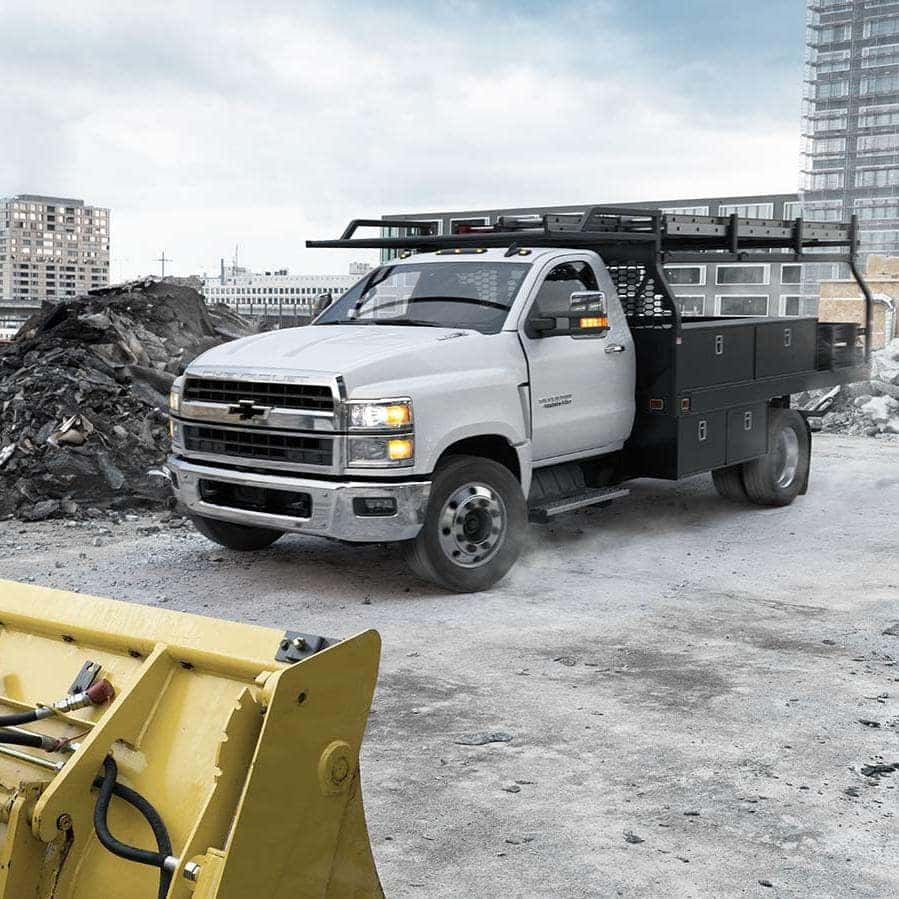Medium Duty Trucks for Sale in Florida: Your Comprehensive Guide to Navigating the Sunshine State’s Commercial Vehicle Market

Medium Duty Trucks for Sale in Florida: Your Comprehensive Guide to Navigating the Sunshine State’s Commercial Vehicle Market
Florida, with its booming economy, diverse industries, and ever-expanding infrastructure, is a hotbed for commercial activity. From the bustling ports of Miami and Jacksonville to the agricultural heartland and the widespread construction sites, businesses across the state rely heavily on a robust fleet of vehicles to get the job done. Among the most crucial components of this commercial ecosystem are medium duty trucks. These versatile workhorses bridge the gap between light-duty pickups and heavy-duty semi-trucks, offering an ideal balance of payload capacity, maneuverability, and cost-efficiency for a wide array of applications.
This comprehensive guide will delve into everything you need to know about medium duty trucks for sale in Florida. We’ll explore what defines these essential vehicles, why they are so vital to the state’s economy, key considerations for potential buyers, where to find them, and practical advice to ensure you make an informed and successful purchase.
Understanding Medium Duty Trucks: What They Are and Why They Matter in Florida
Medium duty trucks are generally classified as commercial vehicles with a Gross Vehicle Weight Rating (GVWR) ranging from 14,001 to 26,000 pounds. This encompasses vehicles in Class 4, Class 5, and Class 6. Their design allows them to handle significant payloads and specialized equipment while remaining agile enough for urban delivery routes and less demanding than their heavy-duty counterparts in terms of fuel consumption and maintenance.
In Florida, the demand for medium duty trucks is driven by a multitude of industries:
- Logistics & Delivery: From last-mile delivery services to refrigerated transport for perishable goods, box trucks and refrigerated trucks are ubiquitous. Florida’s high population density and tourism industry necessitate efficient movement of goods.
- Construction & Landscaping: Dump trucks, flatbeds, and utility body trucks are indispensable for hauling materials, equipment, and debris to and from construction sites and for extensive landscaping projects across the state’s diverse terrains.
- Utilities & Services: Plumbers, electricians, HVAC technicians, telecommunications companies, and municipal services rely on medium duty trucks equipped with service bodies, aerial lifts, or specialized compartments to carry tools, parts, and personnel.
- Food & Beverage Distribution: Beverage trucks, food delivery vehicles, and catering trucks often fall into this category, navigating both urban and suburban environments.
- Waste Management: Smaller refuse trucks and recycling vehicles for commercial or specialized routes.
The benefits of choosing a medium duty truck for your Florida business are numerous:
- Versatility: Customizable with various body types to suit specific job requirements.
- Efficiency: Generally better fuel economy than heavy-duty trucks, leading to lower operating costs.
- Maneuverability: Easier to navigate congested city streets and tighter spaces than larger trucks.
- Payload Capacity: Sufficient for many commercial applications without the need for a full CDL (in many cases).
- Durability: Built to withstand rigorous commercial use, offering a long service life.
Key Considerations When Buying a Medium Duty Truck in Florida
Purchasing a medium duty truck is a significant investment. Careful consideration of several factors will ensure you select the right vehicle for your specific needs in Florida.
- Application & Payload Requirements: This is paramount. What will the truck be used for? How much weight will it consistently carry? This dictates the necessary GVWR, axle configuration, engine power, and most importantly, the body type (e.g., dry box, refrigerated, flatbed, dump, utility, stake bed).
- Gross Vehicle Weight Rating (GVWR) & CDL Requirements: Trucks with a GVWR over 26,000 pounds typically require the driver to possess a Commercial Driver’s License (CDL). Many medium duty trucks (especially Class 4 and 5) fall below this threshold, allowing drivers with standard licenses to operate them, which can significantly expand your pool of potential drivers. Always verify the GVWR and applicable Florida DOT regulations.
- Engine & Fuel Type:
- Diesel: Offers superior torque, fuel efficiency for heavy loads, and longevity. Ideal for long hauls or continuous heavy use.
- Gasoline: Lower upfront cost, less complex emissions systems, and often quieter. Suitable for shorter routes, lighter loads, or applications where diesel isn’t preferred.
- Alternative Fuels (Propane, CNG): Growing in popularity for fleets due to lower emissions and stable fuel costs, though infrastructure might be less common.
- Transmission: Automatic transmissions are increasingly common, offering ease of use and reducing driver fatigue, especially in stop-and-go Florida traffic. Manual transmissions offer more control and can sometimes be more fuel-efficient, but require a skilled driver.
- New vs. Used:
- New: Latest technology, full warranty, customizable, higher initial cost.
- Used: Lower upfront cost, immediate availability, may have existing wear, shorter or no warranty. Pre-owned certified programs from dealerships can offer a good middle ground.
- Maintenance & Service Network: Consider the availability of authorized service centers and parts in Florida for your chosen brand. Downtime can be costly, so reliable maintenance support is crucial.
- Budget & Financing: Beyond the purchase price, factor in registration, taxes, insurance, fuel, and ongoing maintenance. Explore financing options such as traditional loans, leases, or specialized commercial vehicle financing.
- Florida Climate Considerations: The state’s hot, humid climate can impact vehicle components. Ensure the truck’s cooling system is robust, and consider rust prevention measures, especially if operating near the coast where salt air is prevalent. A good air conditioning system is a non-negotiable for driver comfort and productivity.
Where to Find Medium Duty Trucks for Sale in Florida
Florida offers a robust market for commercial vehicles, with numerous avenues to explore when searching for your next medium duty truck:
- Authorized Dealerships: These are the primary source for new medium duty trucks from major manufacturers like Ford, Freightliner, Hino, Isuzu, Kenworth, Peterbilt, Ram, and Chevrolet/GMC. They often carry a selection of certified pre-owned vehicles as well. Dealerships provide warranties, financing options, and dedicated service departments.
- Used Truck Dealerships: Specializing solely in pre-owned commercial vehicles, these dealerships offer a wider variety of makes, models, and price points. They can be excellent sources for finding specific configurations or older models.
- Online Marketplaces & Aggregators: Websites like TruckPaper.com, CommercialTruckTrader.com, and MyLittleSalesman.com are dedicated to commercial vehicle sales and allow you to filter by location, make, model, and other criteria. General marketplaces like Craigslist or Facebook Marketplace can also list private sales, but caution and thorough due diligence are advised.
- Auctions: Commercial vehicle auctions (both online and in-person) can offer competitive pricing, especially for fleet liquidations or government surplus. However, these sales are often "as-is," requiring buyers to be knowledgeable about vehicle inspection.
- Fleet Sales & Private Sellers: Large companies updating their fleets may sell their used medium duty trucks directly. This can be a source for well-maintained vehicles, often with service records.
The Buying Process: A Step-by-Step Guide
Navigating the purchase of a medium duty truck involves several key steps to ensure a smooth transaction and a suitable vehicle:
- Define Your Needs and Budget: Clearly outline your operational requirements (payload, mileage, terrain) and establish a realistic budget, including not just the purchase price but also estimated operating costs.
- Research & Identify Potential Models: Based on your needs, research brands and models that fit your criteria. Read reviews, compare specifications, and create a shortlist.
- Locate Available Trucks: Utilize the sources mentioned above to find trucks that match your shortlist in Florida.
- Inspect the Vehicle Thoroughly:
- Visual Inspection: Check for rust, body damage, tire wear, fluid leaks, and general condition.
- Interior Check: Assess seat condition, dashboard functionality, and HVAC system.
- Engine Bay: Look for signs of neglect, leaks, or unusual modifications.
- Underneath: Inspect the frame, suspension, and exhaust system.
- Conduct a Pre-Purchase Inspection (PPI): For used trucks, this is critical. Have an independent, qualified mechanic inspect the vehicle. They can identify potential issues that may not be apparent to the untrained eye.
- Request Vehicle History Report: Obtain a CARFAX or similar report (if available) to check for accident history, flood damage (especially relevant in Florida), salvage titles, and odometer discrepancies. For commercial vehicles, maintenance records from the previous owner are invaluable.
- Test Drive: Load the truck if possible to simulate real-world conditions. Pay attention to engine performance, transmission shifts, braking, steering, and any unusual noises.
- Negotiate Price: Be prepared to negotiate. For new trucks, inquire about factory incentives. For used trucks, leverage any inspection findings to support your offer.
- Secure Financing & Insurance: Finalize your financing arrangements and ensure you have appropriate commercial vehicle insurance coverage before taking possession.
- Complete Paperwork: Handle the title transfer, registration, and sales tax payments as required by the Florida Department of Highway Safety and Motor Vehicles (FLHSMV).
Tips for a Successful Purchase
- Don’t Rush: Take your time to research and inspect. A hasty decision can lead to costly regrets.
- Verify Maintenance Records: Especially for used trucks, a history of regular maintenance is a strong indicator of a well-cared-for vehicle.
- Understand Total Cost of Ownership (TCO): Beyond the purchase price, consider fuel, insurance, maintenance, repairs, and depreciation over the truck’s lifespan.
- Check for Florida-Specific Issues: Be extra vigilant about rust, especially on coastal vehicles, and ensure the AC system is robust.
- Ask About Warranties: New trucks come with factory warranties. For used trucks, inquire if any remaining factory warranty is transferable or if the dealership offers an extended warranty.
Challenges and Solutions
- Finding the Exact Configuration: Commercial trucks are highly specialized. If an exact match isn’t available, consider purchasing a chassis cab and having a custom body installed by an upfitter in Florida.
- High Demand/Limited Inventory: Florida’s growth can lead to high demand. Be prepared to act quickly, or expand your search radius beyond your immediate area.
- Financing for New Businesses: Lenders may require a larger down payment or more collateral for newer businesses. Explore specialized commercial vehicle lenders who understand the industry.
- Maintenance Costs: Proactive preventive maintenance is key to mitigating unexpected repair costs. Budget for regular service intervals.
Estimated Price Ranges for Medium Duty Trucks in Florida (Illustrative)
Please note that these are estimated price ranges and can vary significantly based on make, model, year, mileage, condition, engine type, transmission, body type, installed features, and market demand. Always request specific quotes and conduct thorough research.
| Truck Type / Condition | GVWR Class (Approx.) | Estimated Price Range (USD) | Key Factors Influencing Price |
|---|---|---|---|
| New Chassis Cab | Class 4-6 | $55,000 – $90,000+ | Brand, engine, transmission, cab configuration, optional features |
| New Box Truck | Class 4-6 | $75,000 – $120,000+ | Chassis cost + body type/size, liftgate, refrigeration unit |
| New Dump Truck | Class 5-6 | $80,000 – $130,000+ | Chassis cost + dump body capacity, hydraulics, PTO |
| New Utility/Service | Class 4-5 | $70,000 – $110,000+ | Chassis cost + specialized body, crane, compartments |
| Used (3-7 Years Old) | Class 4-6 | $30,000 – $70,000 | Mileage, condition, brand reputation, maintenance history |
| Used (8-15 Years Old) | Class 4-6 | $15,000 – $45,000 | High mileage likely, potential for more wear, budget-friendly option |
| Specialized Used | Class 4-6 | $40,000 – $90,000+ | Refrigerated units, highly customized bodies, specific industry use |
Frequently Asked Questions (FAQ)
Q1: What is the typical GVWR range for a medium duty truck?
A1: Medium duty trucks generally have a Gross Vehicle Weight Rating (GVWR) between 14,001 pounds and 26,000 pounds, encompassing Class 4, Class 5, and Class 6 vehicles.
Q2: Do I need a CDL (Commercial Driver’s License) to drive a medium duty truck in Florida?
A2: Not necessarily. In Florida, a CDL is typically required if the truck has a GVWR of 26,001 pounds or more, or if it’s designed to transport 16 or more passengers (including the driver), or carries hazardous materials requiring placarding. Many Class 4 and 5 medium duty trucks fall below the 26,001 lb threshold, allowing them to be driven with a standard Class E Florida driver’s license. Always verify the specific truck’s GVWR and your state’s regulations.
Q3: What are the most popular medium duty truck brands for sale in Florida?
A3: Popular brands often found in Florida include Ford (F-Series, F-650/F-750), Freightliner (M2 106), Hino (195, 268), Isuzu (N-Series), Ram (3500/4500/5500 Chassis Cab), and Chevrolet/GMC (Low Cab Forward, Silverado/Sierra 4500HD/5500HD/6500HD).
Q4: Is it better to buy a new or used medium duty truck in Florida?
A4: The choice depends on your budget, immediate needs, and risk tolerance. New trucks offer warranties, the latest features, and full customization. Used trucks are more budget-friendly and offer immediate availability, but require more diligent inspection and may have higher long-term maintenance needs.
Q5: How does Florida’s climate affect truck maintenance?
A5: Florida’s high heat and humidity can put extra strain on cooling systems, air conditioning, and electrical components. Salt air, especially near coastal areas, can accelerate corrosion and rust. Regular checks of coolant levels, AC performance, and rust prevention treatments are highly recommended.
Q6: What financing options are available for medium duty trucks in Florida?
A6: Common options include traditional bank loans, dealership financing, and specialized commercial vehicle leasing or loan programs. Interest rates and terms vary based on your business’s credit history, down payment, and the vehicle’s age and cost.
Q7: Can I customize a medium duty truck after purchasing the chassis?
A7: Absolutely. Many businesses purchase a "chassis cab" (the truck’s frame, engine, and cab) and then work with a local upfitter in Florida to install a specialized body (e.g., custom box, flatbed, service body, dump body) tailored to their specific operational requirements.
Conclusion
Medium duty trucks are the backbone of countless businesses operating in Florida, providing the critical link between supply and demand across diverse industries. Whether you’re a burgeoning startup or an established enterprise, understanding the nuances of this market is crucial for making an informed investment. By carefully considering your operational needs, researching available options, conducting thorough inspections, and leveraging the expert advice available, you can confidently navigate the process of acquiring the perfect medium duty truck to propel your Florida business forward. With the right vehicle, you’ll be well-equipped to tackle the demands of the Sunshine State’s dynamic commercial landscape for years to come.

